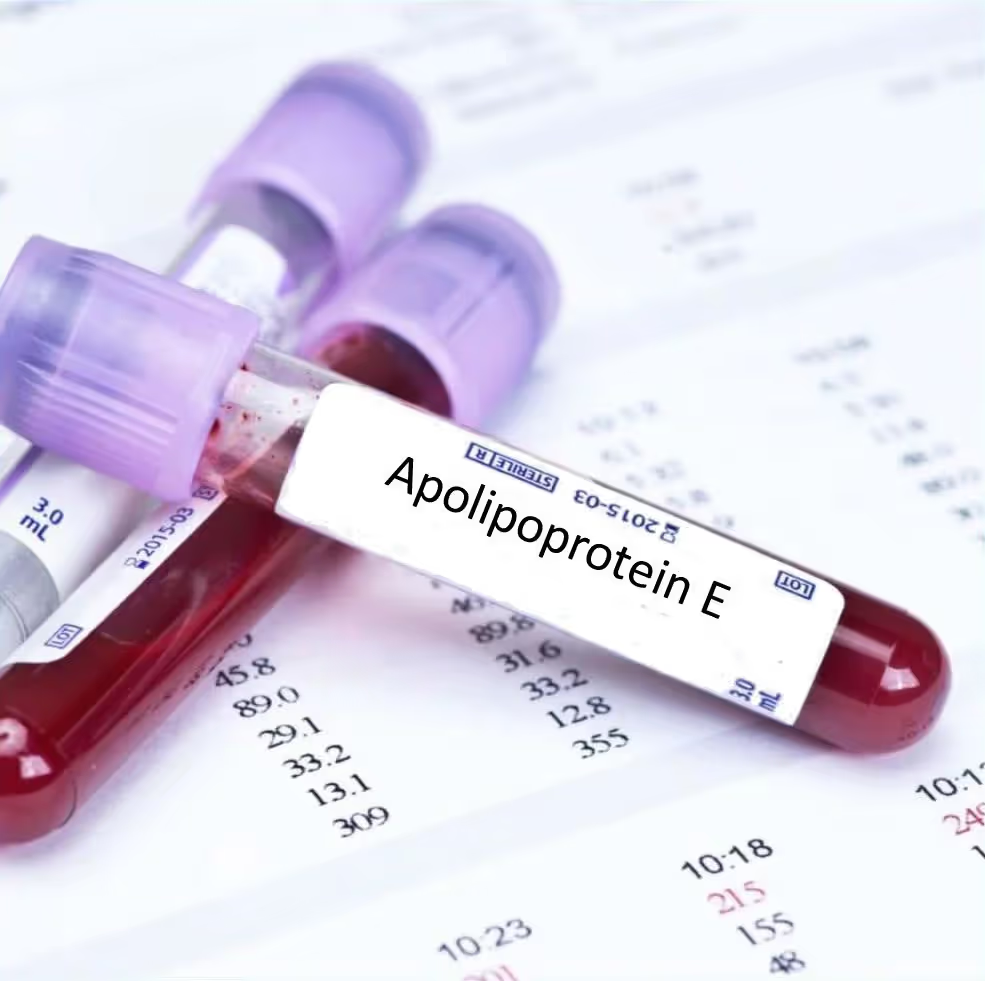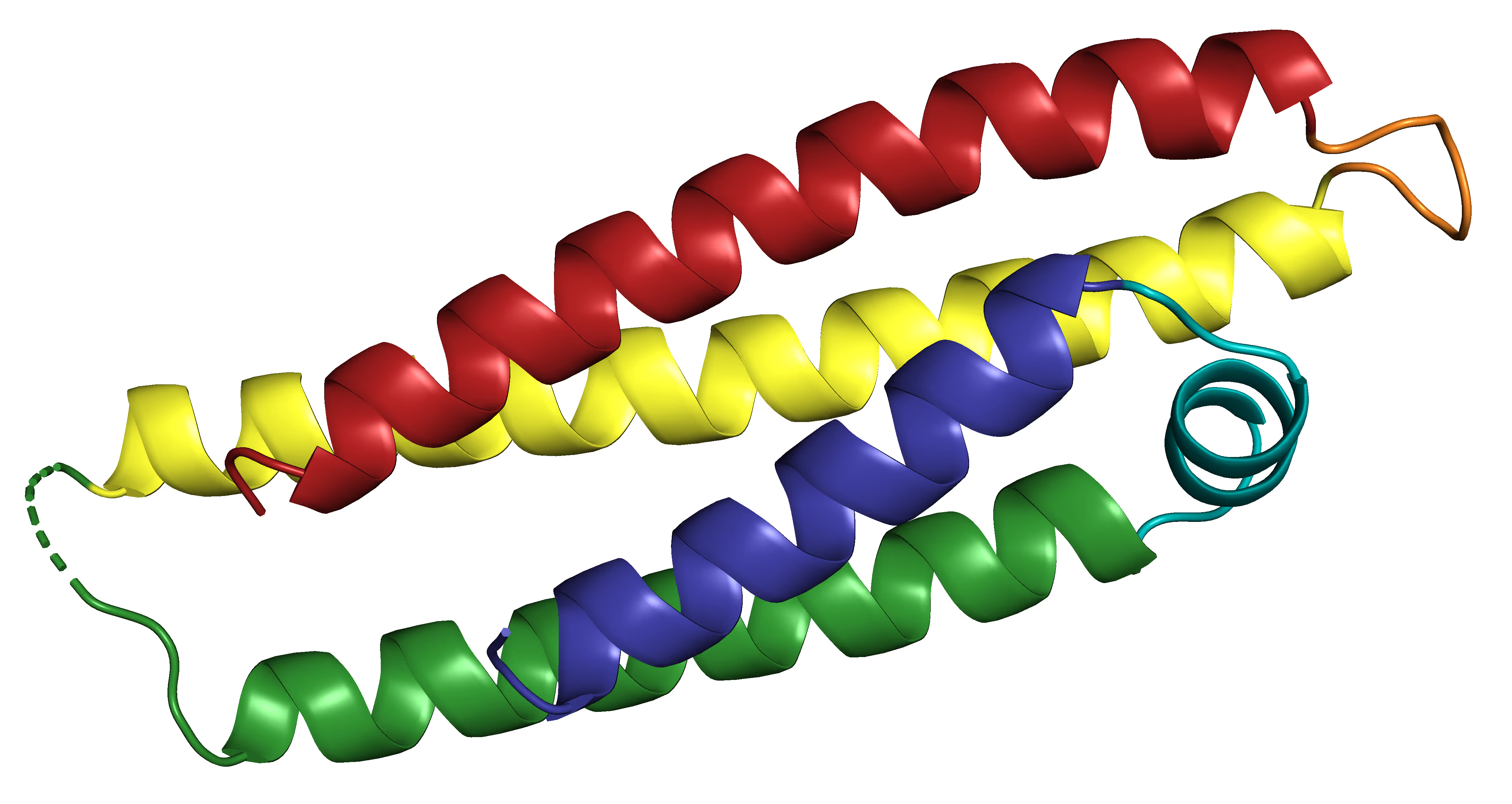Apolipoprotein E Genotype Test (APOE)
Apolipoprotein E (ApoE) genotype is a crucial genetic marker that influences how your body processes cholesterol and supports brain health. Though often overlooked in routine health screens, knowing your ApoE status can provide personalised insights into your risk of Alzheimer’s, cardiovascular disease and lipid disorders. We’ll cover everything you need to know about ApoE: what it is, how it’s measured, its health implications, its limitations, and strategies to optimise your outcomes based on your genotype.

Apolipoprotein E Genotype in Australia, Book Your APOE Test Today
What:
Blood biomarker
Tests for:
Alzheimer's Risk
Referral:
Required
Member cost:
$150-$350
Understanding Apolipoprotein E

Apolipoprotein E (ApoE) is a protein involved in lipid transport and cholesterol metabolism. It plays a key role in carrying fats through the bloodstream and delivering them to cells for energy or storage.
Apolipoprotein e polymorphism refers to the genetic diversity in the APOE gene, which influences disease susceptibility and lipid metabolism.
Variations in the APOE gene influence how effectively this process occurs, and APOE genes are recognised as important genetic risk factors for certain diseases.
Structure and Function
There are three forms of ApoE—ε2, ε3, and ε4—each differing by single amino-acid substitutions. These are the most common variants of the APOE gene found in the population. These small changes affect ApoE’s binding to lipoprotein receptors, altering cholesterol clearance and neural repair mechanisms.
Genetic Variants
An ApoE genotype test identifies which two alleles a person inherits—one allele from each parent. The most common combination, ε3/ε3, is considered neutral, while carrying one or two ε4 alleles raises Alzheimer’s risk. The ε2 allele may offer protective effects in some contexts. The specific combination of alleles a person inherits determines that person's risk for developing certain diseases, such as Alzheimer’s.
What Is an Apolipoprotein E Genotype Test?
An APOE genotyping assay, also known as apolipoprotein e genotyping, analyses your DNA to determine which ApoE variants you possess. It is a form of APOE genetic test and gene testing that provides insight into inherited risk factors for Alzheimer’s and cardiovascular disease. Individuals may be tested for APOE variants as part of a broader genetic risk assessment.
Types of APOE Testing
Most labs use polymerase chain reaction (PCR) based methods or microarray panels. These platforms reliably detect the three common alleles, with the ε3 allele being the most common form found in the general population, and, in some cases, rare variants of the APOE gene.
Sample Collection and Analysis
The APOE blood test requires a simple blood draw—no fasting necessary. A 5 mL sample is sent to a genetics lab, where technicians extract DNA, amplify the APOE region, and identify allele-specific sequences.
Why APOE Genotype Matters for Your Health
Knowing your ApoE status can inform personalised prevention strategies. While genotype alone does not diagnose disease, it shapes your lifelong risk profile, but other factors, such as lifestyle and environment, also play a significant role in shaping health outcomes.
Alzheimer’s Disease Risk

Individuals with one ε4 allele have a 2–3× higher risk of late-onset Alzheimer’s (also referred to as late onset Alzheimer's disease and late onset Alzheimer's disease, which are the most common forms), while ε4/ε4 carriers face up to a 12× increase. The ε4 allele is the strongest known genetic risk factor for developing Alzheimer's disease and late-onset Alzheimer's. While certain genes increase the risk of developing Alzheimer's disease, they do not guarantee that a person will develop Alzheimer's disease. Most cases of Alzheimer's disease are late onset, typically occurring after age 65. Genetic testing can help assess a person's risk of developing Alzheimer's disease over time. However, lifestyle factors still significantly influence actual disease development.
Cardiovascular Health Implications
ApoE variants also modulate lipid levels. ε2 carriers tend to have lower LDL cholesterol but may risk type III hyperlipoproteinemia, also known as familial dysbetalipoproteinemia, which is characterised by increased plasma cholesterol and triglyceride levels; ε4 carriers often exhibit higher LDL, contributing to atherosclerosis risk.
Who Should Consider APOE Genotyping?
APOE genotyping can benefit those seeking to tailor prevention and surveillance plans based on genetic risk.
Family History of Dementia
If you have first-degree relatives diagnosed with Alzheimer’s before age 75, an Apolipoprotein E test can clarify hereditary risk and guide early interventions.
Early-Onset Alzheimer’s Concerns
For individuals under 65 experiencing cognitive decline, APOE genotyping—alongside clinical assessment—may support diagnostic workups and research study eligibility.
Genes that Increase Risk: Beyond APOE
While the APOE gene is the most widely recognised genetic risk factor for Alzheimer’s disease, research shows that several other genes also contribute to disease risk. The APP gene and the PSEN1/ PSEN2 genes play crucial roles in brain protein processing—mutations here lead to the abnormal amyloid-β plaque build up that characterises Alzheimer’s, especially in early-onset cases.
Who Might Benefit from Extended Testing
Genetic testing beyond APOE can clarify risk for those with:
- A strong family history of Alzheimer’s across generations
- Symptoms appearing at a younger age (before 65)
- Interest in understanding rare inherited variants
What Genetic Testing Can—and Cannot—Do
- Not Diagnostic: A positive result for any risk gene (including APOE) does not guarantee disease onset.
- Risk Is Multifactorial: Other genes, cardiovascular health, and environmental factors all combine to determine the actual risk of Alzheimer’s or related disorders like vascular dementia.
APOE Variants & Additional Insights
The APOE gene has three main forms—ε2, ε3 and ε4—with ε4 most strongly linked to late-onset Alzheimer’s. Testing for rare APP, PSEN1 and PSEN2 variants can provide further clarity for those with unusual family patterns or early symptoms.
Genetic Counselling & Testing Process
Interpreting complex genetic results warrants professional support. A genetic counsellor can:
- Explain what your APOE genotype and any additional variants mean
- Advise on implications for you and your family
- Guide prevention and monitoring strategies
A simple blood draw will determine your APOE status and, if needed, screen for other Alzheimer’s-related gene variants—giving you and your healthcare team a clearer picture of your inherited risk.
Factors Influencing ApoE Expression and Test Interpretation
Though genotype is fixed, several factors, including environmental factors such as lifestyle and exposures, can modify ApoE protein expression and its downstream effects.
Lifestyle and Diet
High-fat diets and sedentary behaviour exacerbate lipid disturbances in ε4 carriers. Conversely, a Mediterranean diet rich in omega-3s can improve cholesterol profiles across all genotypes.
Medications and Health Conditions
Statins and PCSK9 inhibitors lower LDL cholesterol regardless of ApoE status. Chronic inflammation, liver disease and thyroid dysfunction can also impact lipid metabolism, complicating risk assessment.
Preparing for Your APOE Genetic Test
No special preparation is required for an APOE blood test—you can eat and drink normally.
Pre-Test Instructions
Simply follow standard advice: stay hydrated, avoid heavy exertion immediately before your appointment, and inform the phlebotomist of any bleeding disorders or medications.
What to Bring to Your Appointment
Bring a valid Medicare card if you plan to claim any rebate, your referral form if required, and photo identification. Arrive a few minutes early to complete paperwork.
Understanding Your APOE Test Results

Everlab’s clear reporting outlines your genotype and interprets potential risks in plain language. These risk estimates are often based on large-scale studies and meta analysis of multiple research findings, which synthesise data to provide comprehensive evidence for genetic risk factors.
Common Genotype Combinations
- ε2/ε2 and ε2/ε3: potentially protective lipid profile
- ε3/ε3: average population risk
- ε3/ε4 and ε4/ε4: elevated Alzheimer’s and cardiovascular risk
What Your Alleles Mean
Carrying an ε4 allele doesn’t guarantee disease—it signifies higher statistical risk. Lifestyle, environment and other genes shape your ultimate health outcomes.
Risks and Limitations of APOE Genotyping
While informative, APOE genotyping comes with caveats. Only a small number of Alzheimer's cases are due to inherited mutations, while most are sporadic.
Privacy and Ethical Considerations
Genetic data is sensitive. Ensure your provider adheres to Australian privacy laws and stores your information securely. Genetic counselling is recommended before and after testing.
Medical Limitations
ApoE status is only one factor in disease risk. It does not replace clinical assessments, neuroimaging or other biomarkers. Misinterpretation can cause undue anxiety.
Long-Term Health Implications of APOE Status
Knowing your genotype empowers you to implement targeted prevention strategies over the lifespan, helping to protect your brain health as you age.
Personalised Prevention Strategies
ε4 carriers might prioritise cognitive training, cardiovascular screening and Mediterranean-style nutrition from an earlier age. ε2 carriers should still monitor lipid panels to detect rare dyslipidaemias.
Monitoring and Follow-Up
Annual lipid profiles, cognitive assessments, and tailored lifestyle coaching help track progress. Everlab’s integrated platform consolidates genetics, pathology and wearable data for cohesive reviews.
Strategies to Mitigate APOE-Related Risks
Though you can’t change your genotype, you can modify modifiable risk factors.
Dietary Adjustments
Adopt a diet rich in monounsaturated fats, leafy greens and low-GI carbohydrates. Limit saturated fats and refined sugars, especially if you carry ε4 alleles.
Physical Activity Recommendations
Aim for 150 minutes of moderate exercise weekly—brisk walking, cycling or swimming. Resistance training twice weekly supports healthy lipid metabolism and cognitive resilience.
Sources
1. MedlinePlus Genetics – APOE gene
https://medlineplus.gov/genetics/gene/apoe/
2. National Institute of Aging - Alzheimer's Disease Genetics Fact Sheet
3. National Library Of Medicine - APOE
https://www.ncbi.nlm.nih.gov/gene/348
4. World Health Organization - Dementia
Get On Top Of Your ApoE Levels
An Apolipoprotein E genotype test offers actionable insights into your genetic risk for Alzheimer’s and cardiovascular disease. By combining timely testing with lifestyle modifications, you can take control of your long-term health. Book your APOE test in Australia today to start personalising your prevention strategy.
.avif)


imaging

biomarkers

sterols
Book a Free Discovery Call
Join 20,000+ Australians improving their health with proactive, personalised healthcare.